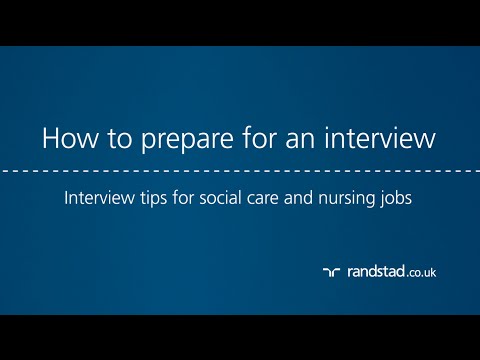<p>If you’re a newly qualified social worker, attending your first interview may seem like a daunting prospect, especially when <a href="/jobs/s-social-care/ss-social-care/r-social-worker/">finding a social work job</a> in today’s competitive market can be hugely competitive. However, as most successful social work candidates will argue, if you’re able to demonstrate your passion for your profession and showcase your knowledge of the sector as well, then you’re likely to be one step ahead of the competition. <br><br> Preparation is therefore key, and being able to anticipate certain topics, tasks and questions will always help you maintain your focus and overcome nerves. So, for those who are embarking on their first social work interview or even just want to brush up on their techniques, here are a some top tips:</p>
<ul>
<li>prepare for common questions</li>
<li>practice with a friend</li>
<li>know your systems and software</li>
<li>ask about ASYE</li>
<li>prepare questions to ask your employer</li>
</ul>
<h3>Anticipate common questions.</h3>
<p>There are many obvious questions that get asked at almost every interview for a job in social work, whatever level you’re operating at, so you can guarantee that the candidates who flounder with these will be fighting an uphill battle. So, if you’re looking to get a head start here are a few questions which are worth anticipating: <br> <br>How would you prioritise your caseload? <br> It’s not enough to just talk about this in theoretical terms, although you should of course talk about strategies for organisation. Instead, make sure you talk through concrete examples of when you have had to juggle important decisions in the past and how you’ve gone about meeting deadlines. Stress communication, particularly with service users and managers, and show how you have successfully managed to adapt to meet the demands of high caseloads and service user priorities. <br><br> What do you know about our local authority/voluntary organisation/private provider?<br> You’ll be expected to have done the basic research into your would-be employer – the website is a good starting point, but Ofsted reports, press and media reports and any interviews that senior leaders have given should also be read and digested. <br><br>What legislation is most relevant to the role?<br> Discussions about legislation and the requirements of the position are common for NQSW roles and are often used as ways of making sure that you can back up and contextualise claims on your CV with knowledge about the latest government acts and policies. So, revise and read up on your legal obligations and the latest political debates around social work and make sure you understand the implications of legislation like <a href="the">http://www.communitycare.co.uk/2014/06/08/care-act-2014-means-social-wo… Care Act 2014</a> or the <a href="Children">http://www.communitycare.co.uk/2014/04/16/children-families-act-2014-me… and Families Act 2014</a>. </p>
<h3>Rehearse with a friend.</h3>
<p>After doing your research and revising your knowledge, it’s a good idea to put it into practice with a rehearsal. Get your list of common questions together and ask someone to help. Ideally it will be someone with some social work knowledge, but whether you ask a fellow job hunter, a friend from university or a relative, sit down and do a proper mock interview. They’ll be able to give you feedback both on the quality of your answers and your interview style and will also be able to pick up on things like body language and clarity. <br><br></p>
<h3>Get to know your systems and software.</h3>
<p>Every job has its technical side, and social work is no different. Remember that different organisations use different systems to record assessments, actions and case management, so see if you can find out in advance what systems your prospective employer has and show that you understand how it can streamline processes. It’s also important to highlight any existing experience you have with tools and software, so if you’ve used platforms to organise your CPD or manage cases before, reference them in the interview and explain why you found them useful.<br><br>Our recruiters in the care sector have outlined their number one interview prep tip in the clip below:</p>
<h3>Don’t be afraid to ask about ASYE.</h3>
<p>If you’re applying for a job which does not openly state that it will contribute to your <a href="assessed">http://www.skillsforcare.org.uk/Learning-development/The-ASYE-adults/Th… and supported year in employment (ASYE)</a>, do not be afraid to ask in the interview as your employers may be willing to consider supporting you through this. Many employers will be happy to do so, and the interview is a good time to pose the question as it demonstrates your commitment to the profession and your enthusiasm to develop your skills. </p>
<h3>Always ensure you have questions to ask the employer</h3>
<p>Social work is an investigative career, so it’s expected that you’ll have some questions to ask if there are things which are absent from the job description. Your questions will highlight your knowledge of the organisation you’re hoping to join and can help frame your position in the minds of your interviewers. If you’re short of ideas or the interviewer has already answered your questions during the conversation, think about asking about opportunities for progression, the team you’ll be joining or any challenges that are facing the organisation that you’ve discovered during your research. </p>





